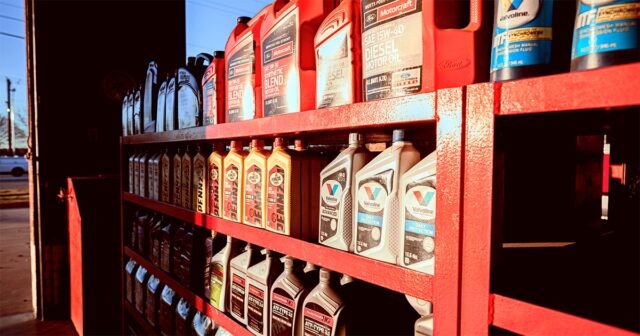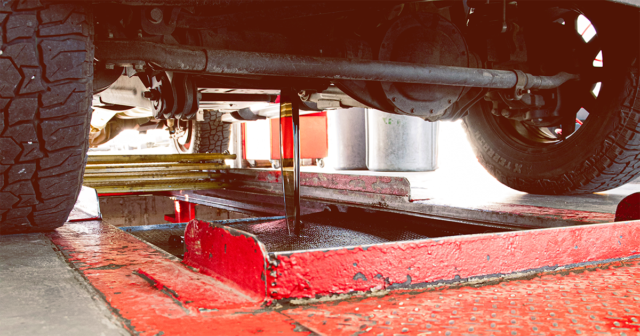Let’s be real, we have all heard the talk about synthetic vs. conventional oil, but how much of it matters for your car? Maybe you have even felt a little overwhelmed by all the options at the auto shop. One promises better engine protection; the other is more budget-friendly. But which one delivers? If you have ever wondered whether you are getting the best oil for your engine or just falling for the market hype, you are in the right place. Let’s break down the facts, no fluff, so you can make the best choice for your car without second-guessing.
Here’s the thing, not all oils are created equal. Conventional oil has been around for ages, it is straightforward, does the job, and won’t empty your wallet. But then there’s synthetic oil, the slick, high-tech option engineered to perform better, especially under extreme conditions. It is like comparing a reliable old sedan to a brand-new sports car. Both get you where you need to go, but the experience is entirely different. So, which one is right for your car? That depends on what you value more, sticking to the tried and true, or opting for the latest and greatest.
Understanding Oil Change Basics
Engine oil is a fundamental component in keeping your car’s engine in decent shape. It’s not just about lubrication; oil plays several crucial roles in your engine’s health. It reduces friction between the engine’s moving parts, which helps prevent overheating and excessive wear, as well as carrying away contaminants like dirt and metal particles that can accumulate or cause damage.
As oil ages, its effectiveness declines. It can become thick and sludgy, which reduces its ability to lubricate and clean the engine. When this happens, the engine may start to perform poorly, or you might notice strange noises or a decrease in efficiency. Old oil can also lead to more serious issues, such as engine overheating or failure.
Regular oil changes are a simple but necessary part of vehicle maintenance. They involve draining the old, degraded oil and replacing it with fresh oil that can provide proper lubrication and cleaning. This routine maintenance helps keep the engine running in good condition and can prevent serious and costly problems from arising. It’s also one of the most straightforward ways to extend the life of your vehicle and maintain its performance.
What is Conventional Oil?
Conventional oil, often called mineral oil or standard oil, is the most basic motor oil used in vehicles. It is produced from crude oil through a refining process that filters out impurities. This base oil is mixed with various additives designed to enhance its performance, improving characteristics such as stability and protection against rust and corrosion. Despite these enhancements, conventional oil is known for its basic properties, including higher viscosity compared to synthetic oils, which limits its effectiveness in extreme temperatures.
Typically, conventional oil is less expensive than synthetic options, making it a cost-effective choice for many drivers. However, it generally requires more frequent changes, usually every 3,000 to 5,000 miles, due to its shorter lifespan and lower resistance to high temperatures and oxidation. While conventional oil offers reliable performance, it may not provide the same level of protection and longevity as more advanced oil types.
Benefits of Conventional Oil
- Cost-Effectiveness: Conventional oil is significantly less expensive than synthetic alternatives. For drivers looking to minimize their maintenance costs, this can be a compelling reason to stick with conventional oil.
- Best for Older Vehicles: Vehicles with older engine designs or higher mileage may benefit from conventional oil. Older engines often have fewer complex designs and tolerances that are well-suited to the properties of conventional oil.
- Accessibility: Conventional oil is widely available and is the standard option in many automotive service centers. This makes it easy to find and replace when needed.
What is Synthetic Oil?
Synthetic oil is engineered from chemical compounds, designed to provide superior performance compared to conventional oil. Synthetic oil is made using artificial processes that create a base oil with a more uniform molecular structure. This formulation improves various aspects of oil performance. The base oil is then blended with high-quality additives to further refine its properties, such as lubrication effectiveness and wear protection.
While synthetic oil is the more modern choice and provides extended intervals between oil changes, it is typically more expensive than conventional oil. Despite the higher initial cost, many drivers find it to be a worthwhile investment due to its long-term benefits and improved engine protection.
Benefits of Synthetic Oil
- Improved Engine Protection: Synthetic oil provides better defense against wear and tear, helping to prolong the life of your engine parts.
- Improved Lubrication: The uniform molecular structure allows for better and more consistent lubrication, reducing friction and improving engine efficiency.
- Extended Oil Change Intervals: Synthetic oil generally endures longer than conventional oil. This reduces the frequency of oil changes and could lower maintenance expenses.
- Reduced Engine Deposits: Helps to maintain a cleaner engine by minimizing sludge and debris buildup.
Which Oil is The Best Fit for Your Vehicle?
When deciding between synthetic and conventional oil for your vehicle, several factors come into play, including the age of your vehicle, your driving conditions, and your maintenance preferences.
Conventional oil is typically a better option for older vehicles or those with less complex engine designs. These engines were often designed with conventional oil in mind and using it may provide adequate performance and protection. Typically, conventional oil is sufficient for older vehicle engines that do not require the advanced features of synthetic oil.
In contrast, synthetic oil is typically recommended for newer vehicles and more complex engines. Engineered with a uniform molecular structure, synthetic oil offers superior performance, especially in diverse weather conditions. It maintains its viscosity across a wide temperature range, making it ideal for both extremely hot and cold environments. If you frequently drive in areas with harsh weather conditions or make short trips, synthetic oil’s stability and resistance to breakdown can be particularly beneficial.
If you want to reduce oil change frequency and minimize long-term maintenance costs, synthetic oil may be worth the investment. On the other hand, if you are comfortable with more frequent oil changes and are looking for a wallet friendly option, conventional oil remains a reliable choice.
Consult With an Expert
Choosing between synthetic and conventional oil can feel like navigating a maze of options, but understanding their distinct advantages will guide you to the best choice for your vehicle. Ultimately, choosing between synthetic and conventional oil comes down to your vehicle’s requirements, your driving patterns, and how you prefer to handle maintenance. By aligning your oil choice with these factors, you can ensure that your engine receives the right care to keep running smoothly.
For personalized advice and a professional oil change, stop by Kwik Kar today. Our experienced team can help you select the best oil for your vehicle and ensure it is maintained to the highest standards.


